EDRi-gram, 18 February 2026
What has the EDRi network been up to over the past few weeks? Find out the latest digital rights news in our bi-weekly newsletter. In this edition: A competitiveness feast with our rights on the menu 🍽️
Filter resources
-
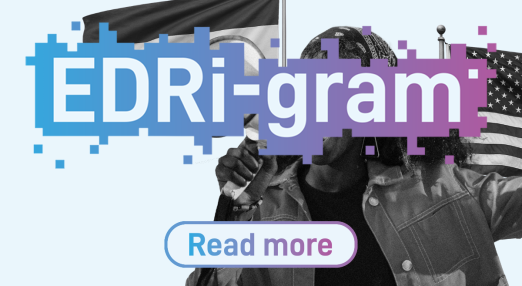
EDRi-gram, 18 February 2026
What has the EDRi network been up to over the past few weeks? Find out the latest digital rights news in our bi-weekly newsletter. In this edition: A competitiveness feast with our rights on the menu 🍽️
Read more
-
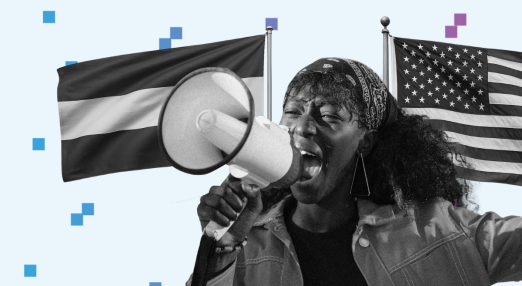
US pressure on the Digital Services Act in the Netherlands
On 3 February 2026, the United States House Committee on the Judiciary launched a report in which EDRi member Bits of Freedom and Justice for Prosperity, among others, are called "censorous NGOs". In response, Bits of Freedom and Justice for Prosperity are issuing the following statement.
Read more
-
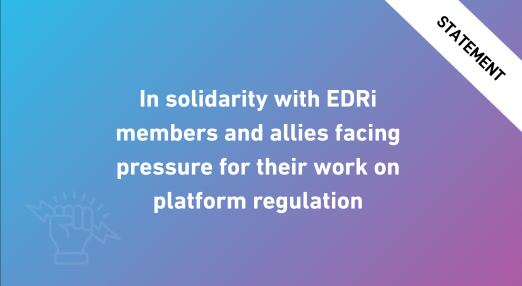
Statement of solidarity with EDRi members and allies facing pressure for their work on platform regulation
The EDRi network strongly condemns the pressure of the US Trump administration on EDRi members and allies for our work on online platform regulation.
Read more
-
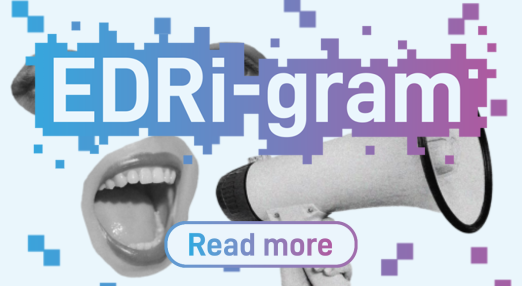
EDRi-gram, 4 February 2026
What has the EDRi network been up to over the past few weeks? Find out the latest digital rights news in our bi-weekly newsletter. In this edition: borders, biometrics, billionaires and bots
Read more
-

EDRi-gram, 21 January 2026
What has the EDRi network been up to over the past few weeks? Find out the latest digital rights news in our bi-weekly newsletter. In this edition: EDRi’s 2025 year in review, new resource to support an EU spyware ban, DSA delayed in Poland, & more!
Read more
-
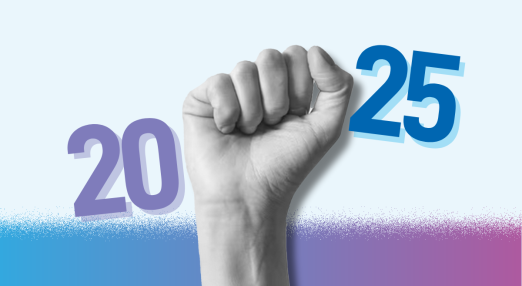
EDRi’s 2025 in review: we resisted, we persisted
As for most civil society organisations, 2025 was a tumultuous and challenging year for EDRi. Shifting political landscapes and shrinking civic space have made the work of civil society in Europe and around the world increasingly difficult for years . Yet we have nevertheless found many reasons to hope, celebrate, resist and persist.
Read more
-

New research reveals how Snapchat uses notifications to manipulate users
A new study by Bits of Freedom shows that Snapchat sends users misleading notifications. This is banned under the Digital Services Act which prohibits misleading and manipulative design on online platforms. The results of this study make for important input into possible DSA enforcement actions and support including rules about attention-grabbing notifications in the upcoming Digital Fairness Act.
Read more
-
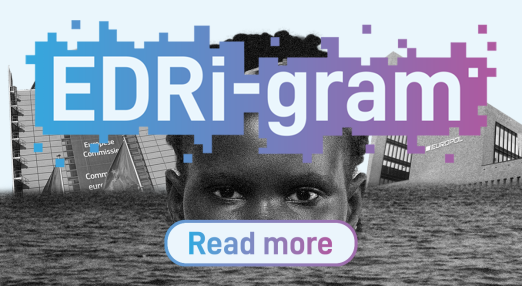
EDRi-gram, 11 December 2025
What has the EDRi network been up to over the past few weeks? Find out the latest digital rights news in our bi-weekly newsletter. In this edition: 2025 might be almost over, but we aren’t done fighting for digital rights
Read more
-
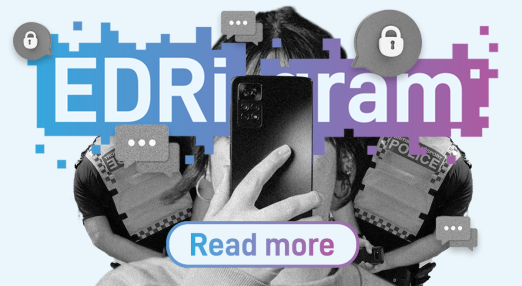
EDRi-gram, 27 November 2025
What has the EDRi network been up to over the past few weeks? Find out the latest digital rights news in our bi-weekly newsletter. In this edition: Digital Omnibus rolls back rights, age verification misses the mark, data workers behind AI, & more!
Read more
-
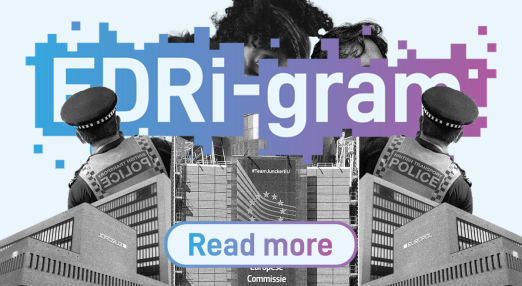
EDRi-gram, 13 November 2025
What has the EDRi network been up to over the past few weeks? Find out the latest digital rights news in our bi-weekly newsletter. In this edition: Halloween is over… but digital rights horrors remain
Read more
-

EDRi-gram, 29 October 2025
What has the EDRi network been up to over the past few weeks? Find out the latest digital rights news in our bi-weekly newsletter. In this edition: we're pondering digital fairness, budget cuts for the Austrian DPA and more.
Read more
-

EDRi-gram, 16 October 2025
What has the EDRi network been up to over the summer? Find out the latest digital rights news in our bi-weekly newsletter. In this edition: Digital protection at stakes – and how we are fighting back.
Read more
